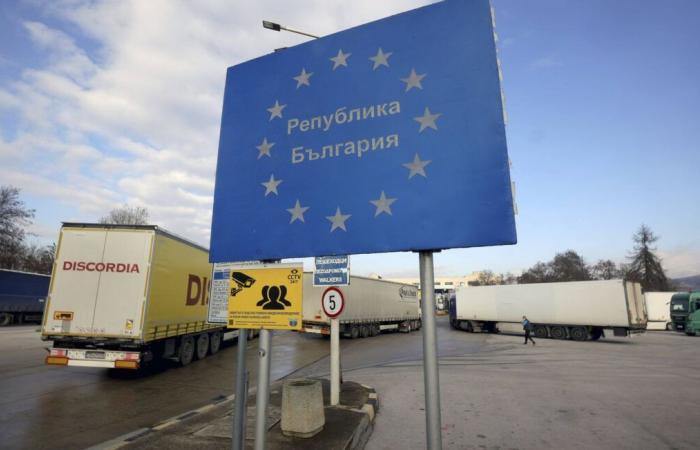With the start of 2025, the Schengen area is expanding. After 13 years of waiting, Romania and Bulgaria fully accessed this area of free movement on Wednesday, both on the road and in the air.
It is a strong symbol for these two countries. Already one foot in the zone with the lifting of controls in March 2024 in airports and seaports, in mid-December they received the approval of their European partners to benefit from the same privileges at land border posts.
A “historic” moment
Ceremonies were organized at different crossing points to celebrate the changeover at midnight. It is “the greatest success” of 2024, greeted Romanian Prime Minister Marcel Ciolacu in his wishes. And the end of a long wait for the two former communist countries, among the poorest in the EU. On both sides, leaders hailed a “historic” moment, stressing that it was a “key objective” “since their entry into the EU” in 2007.
They have met the technical criteria since 2011 but “each time, member states raised objections”, recalls analyst Valentin Naumescu. This problem has become over the years “a source of frustration exploited by anti-EU parties denouncing unfair treatment of Romania”, he explains, as during the recent presidential election which saw the emergence of a surprise candidate from far right before being canceled. With accession to Schengen, “this feeling of being second-rate citizens” is fading, believes the expert.
Created in 1985, the Schengen area now includes 25 of the 27 EU member countries as well as their associated neighbors Switzerland, Norway, Iceland and Liechtenstein. More than 400 million people can in principle travel without being subject to checks.
Vienna finally lifts its veto
This full membership of Romania (19 million inhabitants) and Bulgaria (6.5 million) was made possible by the lifting of Austria's veto. Refractory since 2022, Vienna finally accepted partial entry from Sofia and Bucharest last spring and established a road map for possible expansion. The Alpine country deplored an influx of asylum seekers which would worsen in the event of a land enlargement of Schengen, but it believes that the measures put in place in recent months have allowed “a massive reduction in crossings”.
According to an agreement presented in November, temporary controls will be carried out “for an initial period of six months, in order to minimize the potential change in migration routes”. Surveillance of the Bulgarian-Turkish border, which becomes the external border of the Schengen area, will also be reinforced.
Our articles on the European Union
Significant economic benefits are expected, likely to boost GDP by at least 1% in both countries, according to estimates. Road hauliers, tired of waiting sometimes for almost 20 hours, are already rubbing their hands.






